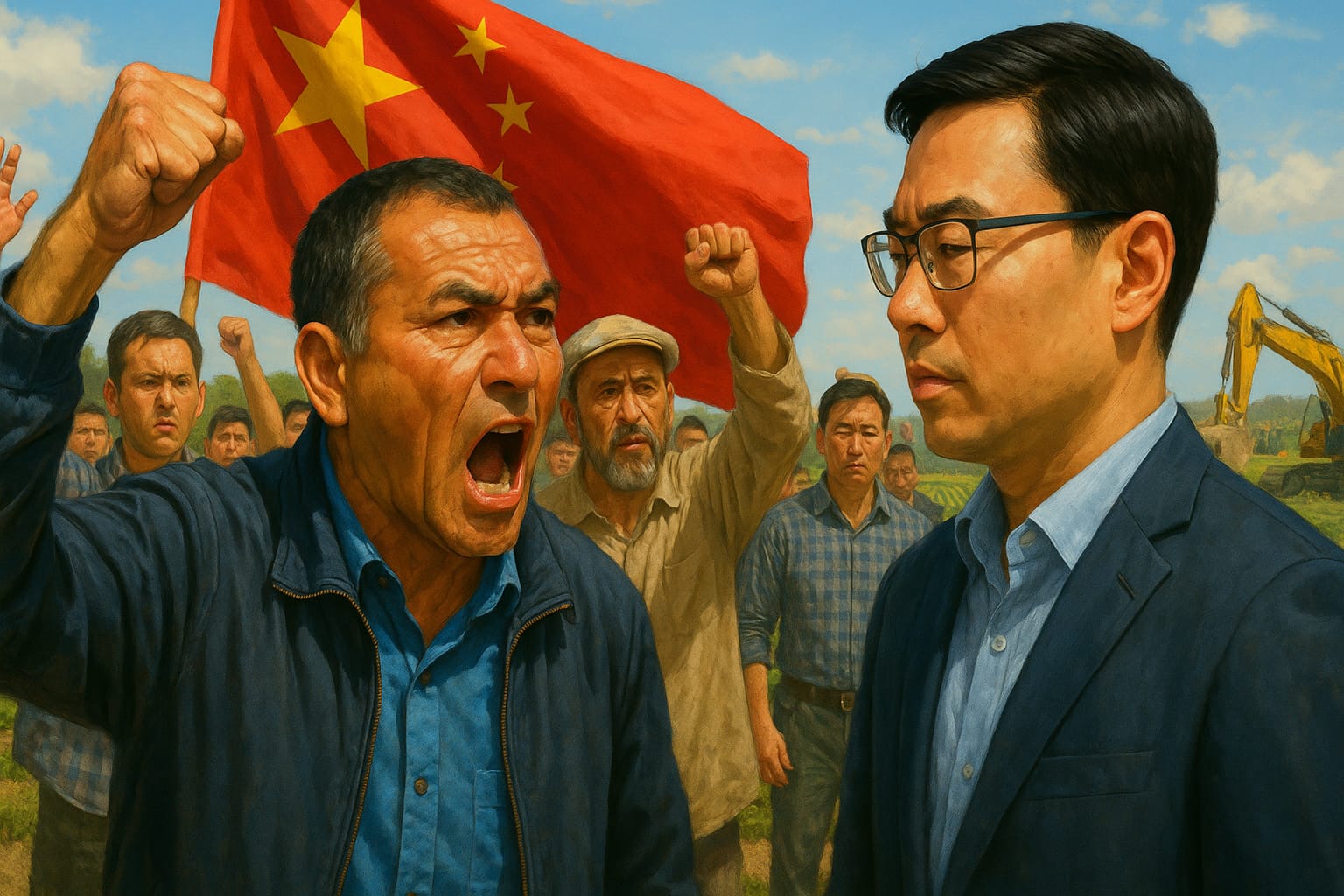Anti-China sentiments grow in Uzbekistan

The sentiments against China are growing in Uzbekistan as they fear Chinese investments may lead to loss of land, livelihoods and sovereignty. The growing Chinese economic presence has sparked deep-rooted worries about external debt, local businesses, economic dependence, and the preservation of Uzbek culture. Several farmers have already lost their lands to the Chinese projects, even as many feared the possibility of a debt-trap and subsequent loss of sovereignty.
There have been heated debates and arguments on social media about how China was taking control of Uzbekistan. Fazliddin Shahobiddin, a social media influencer, shared a post against China, which attracted over 2.7 million views and over 14,000 comments. “Uzbekistan is being bought up by China,” he said. Sentiments against China have been noticeably on the rise in Uzbekistan in recent weeks, especially on social media, said Bekzod Zakirov, the director of the Centre for Policy Research and Outreach at Westminster International University in Tashkent. “Some people are alarmed by the implications of Chinese investments, fearing they might lead to a loss of economic sovereignty and cultural identity,” Zakirov said.
Many Uzbeks have expressed discontent over Chinese living in their country, showing disregard for local laws and engaging in illegal activities. Farmers claimed they were asked to surrender their fertile land to Chinese businesses under the guise of state-backed development. They stated that they were threatened as they resisted the Chinese plans to acquire large swaths of land for the expansion of the Belt and Road Initiative (BRI). “It turns out that the Chinese really like my land; they want to take the land from other farmers too. What worries us most is that they can subsequently seize our country and do to us the same as they did to the Uyghurs in Xinjiang," said one farmer from the Andijon region.
Videos of farmers being threatened to surrender their lands for Chinese companies are viral on social media, sparking heated debates and anger against Beijing. This year, 1,800 hectares were forcefully taken from the farmers in Uzbekistan in order to offer land to the Chinese companies. In 2024, the fertile land of 2200 hectares was acquired from farmers and given to the Chinese private enterprise Tian Ye Plastik. “Because due to the transfer of land to the Chinese, many families in our area are left without work and are deprived of their only source of income. What worries us most is that they could subsequently take over our country and treat us the same as the Uyghurs in Xinjiang,” said one farmer.
According to a survey carried out by the Central Asia Barometer, a Kazakhstan-based think tank, the people finding China favourable shrank to 44 percent in 2021 from 73 percent in 2017. The share of people finding China unfavourable saw a surge during this period, from six percent in 2017 to 33 percent in 2021. There has been a gradual increase in anti-China sentiment. “Since fall 2022, fear of land acquisitions has grown in Uzbekistan, with more than 75 percent of respondents now concerned about the Chinese purchasing land,” as per the latest survey by Central Asia Barometer.
China has already entered the power sector in Uzbekistan, as Chinese companies have made substantial investments in solar, biomass and wind energy production projects. Now, it is seeking to explore the copper and silver mining and processing business in Uzbekistan, which has led to an increased inflow of Chinese workers. “Those from Uzbekistan show growing opposition to Chinese workers coming to work on Chinese investment projects in the country. Some dissent towards Chinese technology was observed. Distrust of Chinese technology may also be related to security concerns,” Jessica Neafie, an Assistant Professor at Nazarbayev University.
In the past five years (2019–2024), Chinese direct investment in Uzbekistan increased approximately fivefold, reaching around USD 13 billion, thus promising better infrastructure, more jobs, and technology access. The risk of adopting a policy of overreliance on one primary creditor is a major concern, which can allow China to hold financial and economic levers of manipulation to pursue its own interests, said Elizabeth Woods, a research fellow at Central Asia Barometer. “Economic dependence on China firmly goes against Uzbekistan’s historical policy of international neutrality and suspicions of any additional regional players,” she said.
The easy credit access leads to an ‘economic trap’, said political analyst Nargiza Muratalieva, citing Tajikistan losing 1,100 square kilometres of land to China in exchange for debt relief in 2011. Now, with outstanding Chinese loans totalling about USD 3.8 billion, Muratalieva said "The general characteristics of Chinese lending for all countries in the region are the ease of obtaining debts, their difficult repayment, as well as the lack of transparency of procedures and specific conditions.”




![From Kathmandu to the World: How Excel Students Are Winning Big [Admission Open]](https://nepalaaja.com/img/70194/medium/excel-college-info-eng-nep-2342.jpg)


